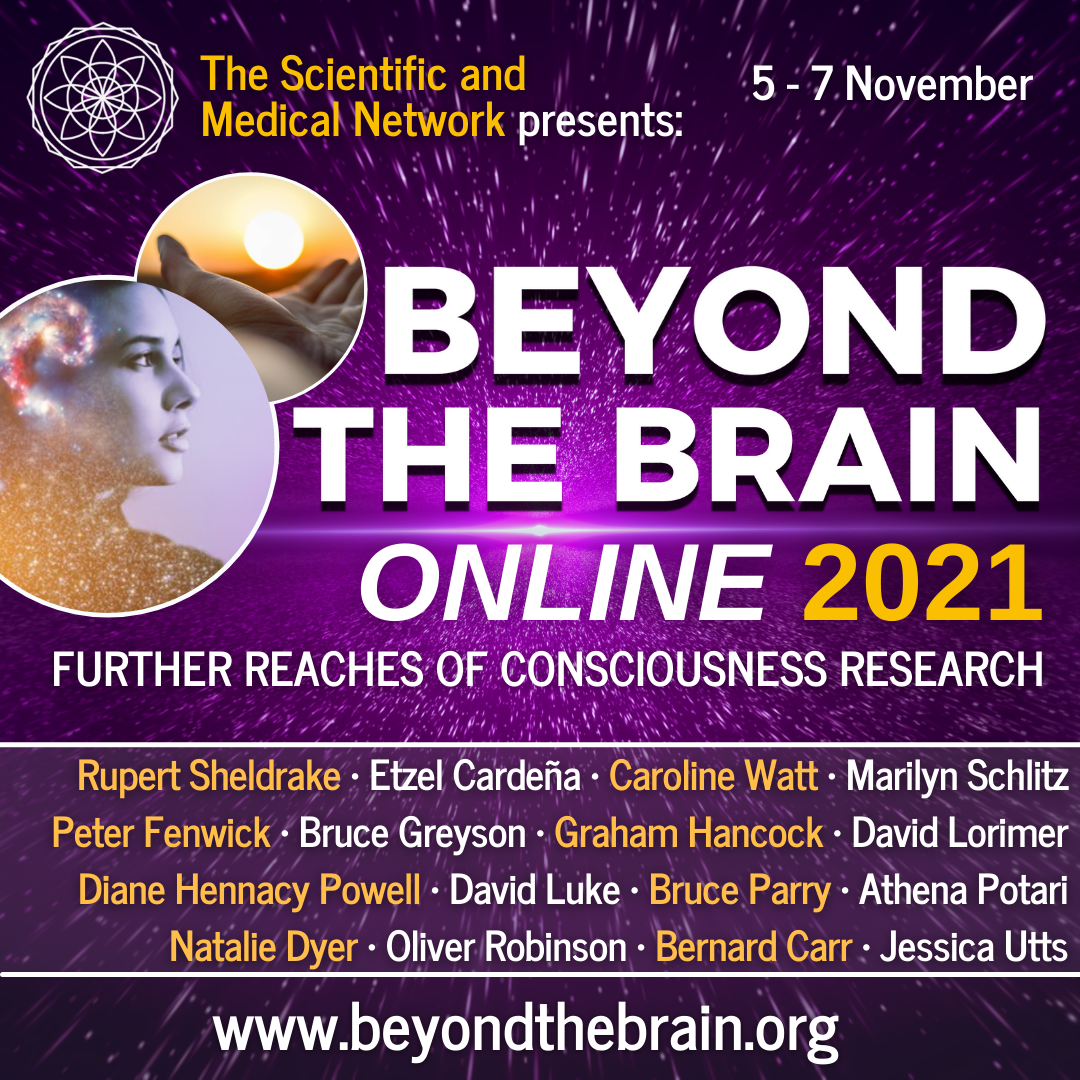
Beyond The Brain 2021 – Further Reaches of Consciousness Research
THE SCIENTIFIC AND MEDICAL NETWORK
with
Division of Perceptual Studies, University of Virginia
Institute of Noetic Sciences
Alef Trust
Presenters and Chairs
Prof Etzel Cardeña, Dr Natalie Dyer, Dr Peter Fenwick, Prof Bruce Greyson, Graham Hancock, Dr Diane Hennacy Powell, David Lorimer, Dr David Luke, Bruce Parry, Dr Athena Potari, Dr Oliver Robinson, Dr Penny Sartori, Prof Marilyn Schlitz, Dr Rupert Sheldrake, Prof Jessica Utts, Prof Caroline Watt

I regard consciousness as fundamental, matter is derivative from consciousness. We cannot get behind consciousness. Everything that we talk about, everything that we regard as existing, postulates consciousness. There is no matter as such; it exists only by virtue of a force bringing the particle to vibration and holding it together in a minute solar system; we must assume behind this force the existence of a conscious and intelligent mind. The mind is the matrix of all matter.Max Planck
Beyond the Brain is the world’s premier conference series exploring new research on whether and how consciousness and mind extend beyond the physical brain and body. This year’s event covers the limitations of scientific materialism, parapsychological research, implications of NDEs, savant syndrome, indigenous gateways to the soul and the nature of universal love. There will also be an experiential session on each day.
Consciousness is one of the hottest topics in science, which is why we established the interdisciplinary Beyond the Brain conference series with Willis Harman and Edgar Mitchell of the Institute of Noetic Sciences at St John’s College, Cambridge in 1995. This will be the fifteenth in the series. The conferences all explore the frontiers of consciousness research beyond the limits of scientific materialism.
We are hosting this year’s event in partnership with three other organisations active in the field: The Division of Perceptual Studies at the University of Virginia founded by Prof Ian Stevenson, The Institute of Noetic Sciences, and The Alef Trust, with whom we collaborate on MSc in Transpersonal Psychology and Consciousness Studies.
Our speakers are all at the cutting edges of their fields and will be discussing innovative research strategies to probe the nature of consciousness. You will gain a vital overview and a deeper understanding of how consciousness research is expanding the horizons of science. This mind-stretching conference is not to be missed, so we greatly look forward to your participation!
•
What people say about Beyond the Brain
Quite frankly, this symposium served as an inspiration to me during what I consider to be ‘dark times’ in planetary consciousness. The speakers were excellent and the information quite likely vital if humanity is to survive the current challenges we now face as a collective species.
Wonderful opportunity to listen to inspiring people, learn about the latest experiments and hypotheses and discuss ideas on consciousness and psi phenomena with others.
A most stimulating and mind-expanding experience.
The whole weekend was life changing and inspirational!
This far exceeded my expectations and allowed me to interact with leading academics on the subject of Near-Death Experience and allied subjects.
•
Session details and speakers
FRIDAY 5th NOVEMBER
Dialogue between Dr Rupert Sheldrake and Graham Hancock on the nature of consciousness and the limits of the materialist paradigm
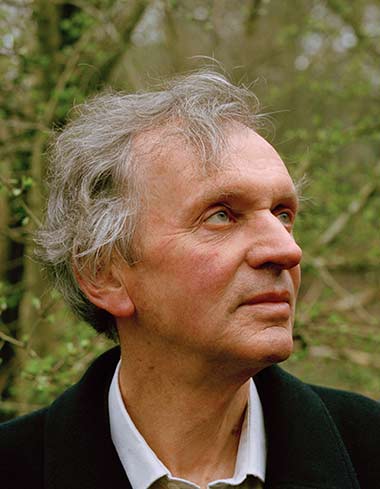
Rupert Sheldrake, PhD, is a biologist and author of more than 90 scientific papers and nine books including ‘Science and Spiritual Practices’ and ‘Ways To Go Beyond, And Why They Work’. He was a Fellow of Clare College, Cambridge, and is currently a Fellow of the institute of Noetic Sciences in California, and of Schumacher College in Devon. He lives in London.
His website is: www.sheldrake.org.
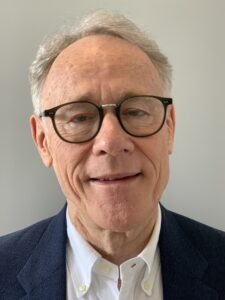
Graham Hancock is the author of a series of controversial books, notably Fingerprints of the Gods (1995), Heaven’s Mirror (1998), Underworld (2002), Magicians of the Gods (2015) and America Before (2019), investigating the possibility of a lost advanced civilization of the Ice Age. He is also known for his work on the role of altered states of consciousness in the origins of art and religion — an interest explored in his 2005 book Supernatural: Meetings with the Ancient Teachers of Man.
•
Dr Diane Hennacy Powell – Revisiting Rainman: The Radical Implications of Savant Syndrome
Savant syndrome is one of the greatest challenges for materialism’s neuro-centric model. Savants have extraordinary skills, such as a prodigious memory in which nothing is ever forgotten. Others know information, such as a foreign language or higher mathematics, but they lack a known exposure to it and/or lack the underlying basic skills, such as simple arithmetic. Savant syndrome differs from genius in that it arises in the setting of a handicap, such as congenital blindness or autism. It can also be acquired by suffering a head injury or being electrocuted. One of the most famous savants was Kim Peek, after whom the main character in the movie Rainman was depicted. He was known for having memorized over 12,000 books word-for-word, with a capacity to recite them backwards and forwards. Most assume he was autistic, but brain imaging showed that he had hydrocephalus, or “water on the brain”, and lacked the major connections between his brain’s two
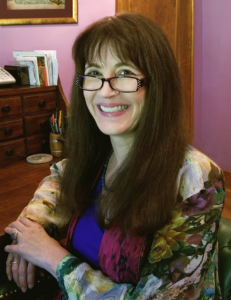
Diane Hennacy Powell, M.D. is a Johns Hopkins-trained neuropsychiatrist and neuroscientist, former Harvard faculty member, and an award-winning author and clinician. She began studying autism in 1987, when she spent six months with Sir Michael Rutter at the Institute for Psychiatry in London. She has served as a member of a think tank on the evolution of human consciousness at the Salk Institute, and as the Director of Research for the John E. Mack Institute. Her experimental research focusses on investigating reports of telepathy in autistic children and has been presented at international science conferences in the US and abroad. She is a polymath whose theoretical work bridges multiple scientific disciplines in its analysis of case studies in neuropsychiatry that challenge materialism’s neuro-centric model. Her 2008 book, The ESP Enigma: A Scientific Case for Psychic Phenomena, presents a rational argument for a new paradigm, which is elaborated upon further in her chapter in the first volume published by the Academy for the Advancement of Postmaterialist Sciences: Is Consciousness Primary?
Website: www.DrDianeHennacy.com
•
Prof Jessica Utts – A Statistician’s Journey through Stargate, Psi, and Pseudoscience
To a statistician, science is the ability to learn from data and observation. Pseudoscience, on the other hand, is the practice of forming conclusions based on belief rather than evidence. As the statistician for the U.S. government’s Stargate program, Professor Utts began examining data from experiments in parapsychology in the late 1980s, and continued to do so throughout her academic research career. As she concluded in her review of the Stargate Program for the U.S. Congress, “Using the standards applied to any other area of science [that uses statistics], it is concluded that psychic functioning has been well established.” Yet, throughout her career she has found that most scientists are actually pseudoscientists when forming conclusions about psi. Very few have actually examined the experimental data, preferring instead to rely on their unsubstantiated beliefs, whether for or against the existence of psychic abilities. In this talk, she will discuss how she reached the conclusion in her Stargate report, and why the pseudoscientists (as defined here) are hurting scientific progress across the spectrum, not just in parapsychology. For instance, if information can be gained by means other than the five senses, can a study really be double-blind, or even single-blind? These are questions that should concern everyone who is interested in science.
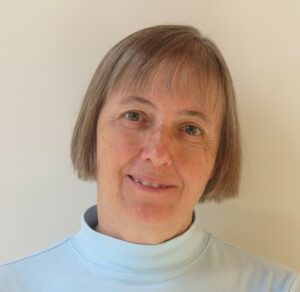
Jessica Utts is Professor Emerita of Statistics at the University of California at Irvine. She received her B.A. in math and psychology at SUNY Binghamton, and her M.A. and Ph.D. in statistics at Penn State University. She moved to UC Irvine after 30 years at UC Davis, where she was a founding member of the Statistics Department. Professor Utts is dedicated to helping the general public understand statistical studies, and is the author or co-author of three statistics textbooks with a focus on statistical literacy.
In 2016 she was the President of the American Statistical Association, the largest organization of professional statisticians in the world. Her research career has focused on applying statistics to a variety of disciplines, most notably to parapsychology. She was the statistician for the U.S. Government’s Stargate program, and has been a visiting researcher at the University of Edinburgh, Stanford University, and the Institut für Grenzgebiete der Psychologie und Psychohygiene in Freiburg, Germany. She is an elected Fellow of the American Association for the Advancement of Science, the American Statistical Association, the Institute of Mathematical Statistics, and the Association for Psychological Science.
•••
SATURDAY 6th NOVEMBER
Prof Caroline Watt: From the Indian Rope Trick to Ganzfeld precognition: The work of the Koestler Parapsychology Unit
In this presentation, Caroline Watt highlights the pre-history, remit, and work of the Koestler Parapsychology Unit. From the outset, the first Koestler Professor, Robert Morris, promoted the study of what he called ‘what’s not psychic but looks like it’ alongside more traditional parapsychological research testing the psi hypothesis. This presentation gives examples of the KPU approach, with a whistle stop tour of research into eyewitness accounts of the Indian Rope Trick, the study of psychological factors that may contribute to precognitive dream experiences, and controlled laboratory research into precognition using the ganzfeld method.
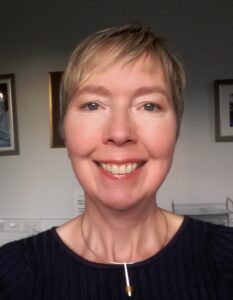
Professor Caroline Watt is Koestler Chair of Parapsychology at the University of Edinburgh, having started her career as a founder member of the Koestler Parapsychology Unit (KPU) under Professor Robert Morris. Watt is a former President of the Parapsychological Association, co-author (with Harvey Irwin) of a leading parapsychology textbook, and since 2008 has run an online parapsychology course for the general public. Watt’s research focus is on testing ESP using the ganzfeld method. She runs a parapsychology study registry and her work highlights wider scientific lessons that emerge from studying paranormal claims.
•
Prof Etzel Cardeña – A Review of the Experimental Evidence for Parapsychological Phenomena
Throughout history and up to the present, many people, some with impeccable scientific credentials, have reported events that seem to violate the common-sense view of time and space. Many of these accounts may be explained as mere coincidences, misrepresentations of the original event, or even fraud, but others strain such explanations, so experimental paradigms have been devised to test them in controlled settings. The experimental support for the hypothesis that individuals can be affected by events temporally or spatially distant (i. e., psi or parapsychological phenomena), without the mediation by the senses or inference, has been reviewed in major mainstream journals (e.g., American Psychologist, Psychological Bulletin, Journal of Personality and Social Psychology). This presentation will:
- present a summary of that evidence, discussing the strengths and limitations of the accumulated data; and
- address the strengths and weaknesses of criticisms of this area of research within the context of how research on other areas of science is discussed.
The study of psi phenomena has made considerable strides since the initial studies more than a century ago despite minuscule funding and strident hostility by some in academia (others, including more than 30 Nobel prizewinners have been supportive of this research). The ongoing re-evaluation of the potential primacy of consciousness makes psi research an area that deserving of reasoned and informed consideration.
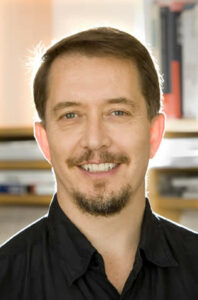
Prof Etzel Cardeña has advanced degrees in psychology from Canada and the US and was a postdoctoral fellow at Stanford University. He holds the endowed Thorsen Chair in psychology at Lund University in Sweden, where he directs the Center for Research on Consciousness and Anomalous Psychology (CERCAP). His areas of research include alterations of consciousness and unusual or anomalous experiences (including parapsychological phenomena), dissociative processes and acute post-traumatic reactions, the neuroscience of hypnosis and meditation, and the stream of consciousness during waking and altered states. He has close to 400 publications, some in top journals in psychology and related disciplines, including the edited books Varieties of Anomalous Experience; Parapsychology: A Handbook for the 21st Century, and Altering Consciousness: Multidisciplinary Perepsectives. His work has garnered awards from multiple professional organizations and has been covered by the New York Times, the New Yorker, and the BBC, among others. He has also worked professionally in theatre as director, actor, and playwright, and is the artistic director of the International Theatre of Malmö.
•
Prof Bruce Greyson – After: What Do Near-Death Experiences Mean for the Next Life – and for This Life?
In this webinar, Bruce Greyson will share some of his most important findings from a half century of near-death research, illustrating his data with captivating examples. He will discuss with us such issues as (1) challenges in researching NDEs; (2) establishing the reality of NDEs; (3) the most common features of the experience, including enhanced thinking and perception, the life review, and out-of-body experiences, highlighting features that are independent of cultural or religious beliefs; and (4) various models that have been proposed to explain NDEs, including the relationship of NDEs to mental illness, to various alterations in brain biology, and to psychological factors.
As startling as some of these findings are, however, Dr Greyson’s primary interest as a psychiatrist is in how NDEs dramatically transform experiencers. In this presentation, he will discuss changes in attitudes toward life and death, changes in spirituality, and changes in behaviour – both positive and challenging aftereffects.
Finally, he will discuss the implications of NDEs for (1) our understanding of mind and brain, including how consciousness can persist after brain activity has stopped; (2) our understanding of the possibility of post-mortem survival, including what NDEs say about God and about heaven and hell; and (3) our understanding of the relationship between biological and spiritual events and what that implies for what it means to be human. He will conclude the
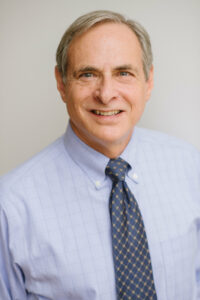
Bruce Greyson, MD is Professor Emeritus of Psychiatry and Neurobehavioral Sciences at the University of Virginia School of Medicine. He was a co-founder and President of the International Association for Near-Death Studies and Editor of the Journal of Near-Death Studies. His research for the past four decades has focused on near-death experiences and particularly their after-effects and implications. His academic work has been translated into twenty languages and used in hundreds of studies worldwide. Dr Greyson has published more than a hundred scholarly articles about near-death experiences and gives regular addresses at international conferences on the matter. AFTER is his first book to bring his ground-breaking research to general readers.
•••
SUNDAY 7th NOVEMBER
Dr David Luke – DMT: Indigenous gateway to the soul and endogenous reality thermostat?
N,N-dimethyltryptamine (DMT), dubbed the ‘spirit molecule,’ is an extremely potent short acting psychedelic substance found endogenously in the human organism and occurring widely (possibly ubiquitously in many kingdoms) in nature, and has been theorised to account for numerous spontaneous exceptional experiences such as those occurring near or at death. The traditional indigenous use of DMT in the Amazonian visionary decoction, ayahuasca, known as the ‘vine of the dead,’ has a long history of shamanic use to transcend time and space and communicate with the spirits of nature. Most people experiencing a breakthrough dose of DMT report encounters with seemingly sentient, intelligent and independent entities, which typically convey a convincing sense of their reality, such that a recent survey found that of those having such encounters who reported being atheist before their experience, more than half reported that they were no longer atheist afterwards. This talk explores the intersection between the scientific, therapeutic, psychonautic, and shamanic exploration of the DMT realm and attempts to fuse these disparate and yet overlapping cosmologies.
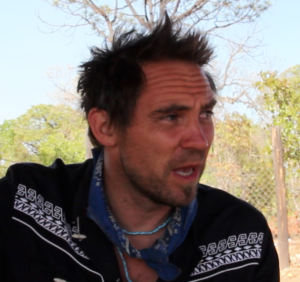
Dr David Luke is Associate Professor of Psychology at the University of Greenwich. His research focuses on transpersonal experiences, anomalous phenomena and altered states of consciousness, especially via psychedelics, having published more than 100 academic papers in this area, including ten books, most recently Otherworlds: Psychedelics and Exceptional Human Experience (2nd ed., 2019). When he is not running clinical drug trials with LSD, conducting DMT field experiments or observing apparent weather control with Mexican shamans he directs the Ecology, Cosmos and Consciousness salon and is a cofounder and director of Breaking Convention: International Conference on Psychedelic Consciousness. He lives life on the edge – of Sussex.
•
Inner and Outer Journeys: An interview with Bruce Parry about his explorations of tribal cultures, psychedelics and the nature of consciousness
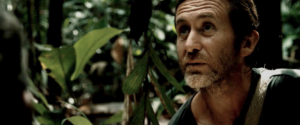
Bruce Parry is best known for his award-winning documentaries which followed him living with and learning from remote indigenous peoples around the world. Other series followed him visiting peoples struggling with the effects of globalisation and climate change and the part we all play in these events. These experiences led him to leave the BBC and direct a feature documentary about humankind’s loss of connection to nature and the effect this is having globally. He has been deeply affected by his travels and is now trying to put into practice some of the lessons he learned over the years, especially influenced by the few remaining egalitarian tribes he has been lucky to meet. He currently lives in Wales.
•
Dr Natalie L Dyer – Connected Across Time and Space through Universal Love
Universal love is a conscious state of unity with others and the whole, which results from contact with the transpersonal/transcendental Self. It is an unconditional, nonjudgmental, and peaceful form of love. Universal love is a common theme emerging from spiritual and mystical experiences, psychedelic use, meditation, and energy medicine. Far from just a feel-good concept, universal love has scientific grounding and experientially transformative value. It is a scientifically validated construct associated with higher altruism, empathy, forgiveness, spiritual experience, compassion, positive mood, life meaning and satisfaction, and less narcissism, negative mood, anger, and aggression. Universal love is also a key component of the transformative power of near-death, psychedelic, and spiritual experiences. Most energy healing techniques also work through cultivating universal love and the experience of universal love is commonly experienced when receiving energy healing. Our emotional closeness with one another can determine the extent of influence on each other’s physiology from a distance. Is it possible that universal love is fundamental to the nature of reality? Is universal love a force that connects our consciousnesses into one? If so, how would this understanding about our nature transform society?
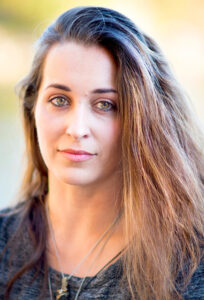
Dr Natalie Dyer, PhD is a research scientist studying the therapeutic effects of integrative medicine and spiritual practices, including yoga, meditation, Reiki, psychedelics, and universal love. She completed her doctorate in neuroscience at Queen’s University and postdoctoral fellowships in psychology at Harvard University and Harvard Medical School. She currently works as a research scientist with Connor Integrative Health Network, and as President of the non-profit organization the Center for Reiki Research. She has published many scientific papers and presented her research to diverse audiences throughout North America and Europe. Together with over 300 other scientists and physicians, Natalie was the first signee of the Manifesto for a Postmaterialist Science, a declaration for science to move beyond the outdated materialist paradigm. Natalie is also an energy medicine practitioner specializing in Reiki and North American, European, and Tibetan shamanic practices.
Website: www.drnataliedyer.com
•
Prof Marilyn Schlitz – Transpersonal Philosophy: Applying Self Transcendence to Our Post-Modern World
Transpersonal philosophy has broad implications for expanding our human potentials. Maslow’s motivational hierarchy of needs has been widely adopted in psychology, business, leadership, innovation, and technology. This turn is useful in helping people to manifest self-actualization, becoming the best they can be. Often overlooked in this multi-disciplinary integration of the transpersonal is the dimension of self-transcendence. Here we are invited to move beyond personal ego-identification. This expansive ideal can help us find new solutions to the deepest challenges we face as a civilization and as co-inhabitants of the living world. It beckons a worldview shift that speaks to interdependence and interconnection. It offers a way of transcending simple tribalism and the in-group/out-group mentality that epitomizes social conflict to one that celebrates pluralism and an expanded sense of the “we”. Moving beyond ego brings us into deep rapport with the natural world and the ways in which we are a whole system. And it offers a spiritual perspective that speaks to our engagement with the great unfolding mystery that embraces us all.
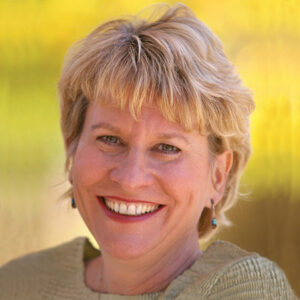
Marilyn Schlitz, Ph.D., M.A. is a world-renowned social scientist, award winning author, filmmaker, and charismatic public speaker. She has conducted clinical, laboratory, and field-based research into consciousness, individual and social transformation, and healing. Her books include: Loving Deeply: The Art and Science of Transformation in Everyday Life; Living the Noetic Life; Death Makes Life Possible; and Consciousness and Healing: Integral Approaches to Mind Body Medicine. She has taught at Harvard, Stanford, and Trinity Universities and is currently Professor in Transpersonal Psychology at Sofia University in California. She served as President and CEO at the Institute of Noetic Sciences, where she is now a Senior Fellow, is Visiting Scholar at the University of California, San Diego, and is Founder of the Grateful Aging Program.
For more information, see www.marilynschlitz.com and https://www.aleftrust.org/professional-certificates/the-grateful-ageing-program-certificate/
TICKETS
All ticket holders will receive links to view the RECORDINGS
